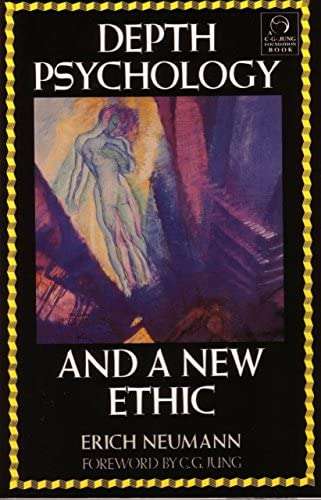Erich Neumann was a psychologist, writer, and one of Carl Jung’s most gifted students.
Neumann received his Ph.D. from the University of Berlin in 1927. He practiced analytical psychology in Tel Aviv from 1934 until his death in 1960. For many years, he regularly returned to Zürich, Switzerland to give lectures at the C. G. Jung Institute. He also lectured frequently in England, France and the Netherlands, and was a member of the International Association for Analytical Psychology and president of the Israel Association of Analytical Psychologists.
Erich Neumann contributed greatly to the field of developmental psychology and the psychology of consciousness and creativity. Neumann had a theoretical and philosophical approach to analysis, contrasting with the more clinical concern in England and the United States. His most valuable contribution to psychology was the empirical concept of “centroversion”, a synthesis of extra- and introversion. However, he is best known for his theory of feminine development, a theory formulated in numerous publications, most notably The Great Mother. His works also elucidate the way mythology throughout history reveals aspects of the development of consciousness that are parallel in both the individual and society as a whole.
Depth Psychology and a New Ethic
Details
The modern world has witnessed a dramatic breakthrough of the dark, negative forces of human nature. The “old ethic,” which pursued an illusory perfection by repressing the dark side, has lost its power to deal with contemporary problems. Erich Neumann was convinced that the deadliest peril now confronting humanity lay in the “scapegoat” psychology associated with the old ethic. We are in the grip of this psychology when we project our own dark shadow onto an individual or group identified as our “enemy,” failing to see it in ourselves. The only effective alternative to this dangerous shadow projection is shadow recognition, acknowledgement, and integration into the totality of the self. Wholeness, not perfection, is the goal of the new ethic.
Although this book was written some time ago, and the world is changing fast, nevertheless the topic is very relevant today. Erich Neumann looks at the possibility of a new set of ethics developing in society, one that requires a lot more conscious action on the part of the individual. He suggests that this new ethic is appearing in more and more cases and will gradually replace the old ethic which most great religions had developed…. the new ethic is the next stage in our development.
The only problem I had with this book is the language used. It was originally written in German and has obviously been translated by a German speaker because the language is often unnecessarily complicated.
Despite this, I found the book very interesting… and hopeful that amongst all the current chaos something is developing in a positive direction, even if it may be difficult to see at the moment.
The modern world has witnessed a dramatic breakthrough of the dark, negative forces of human nature. The “old ethic,” which pursued an illusory perfection by repressing the dark side, has lost its power to deal with contemporary problems. Erich Neumann was convinced that the deadliest peril now confronting humanity lay in the “scapegoat” psychology associated with the old ethic. We are in the grip of this psychology when we project our own dark shadow onto an individual or group identified as our “enemy,” failing to see it in ourselves. The only effective alternative to this dangerous shadow projection is shadow recognition, acknowledgement, and integration into the totality of the self. Wholeness, not perfection, is the goal of the new ethic.
“synopsis” may belong to another edition of this title.
About
Depth Psychology and a New Ethic
The modern world has witnessed a dramatic breakthrough of the dark, negative forces of human nature. The “old ethic,” which pursued an illusory perfection by repressing the dark side, has lost its power to deal with contemporary problems. Erich Neumann was convinced that the deadliest peril now confronting humanity lay in the “scapegoat” psychology associated with the old ethic. We are in the grip of this psychology when we project our own dark shadow onto an individual or group identified as our “enemy,” failing to see it in ourselves. The only effective alternative to this dangerous shadow projection is shadow recognition, acknowledgement, and integration into the totality of the self. Wholeness, not perfection, is the goal of the new ethic.
